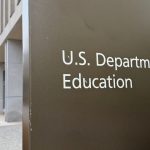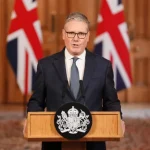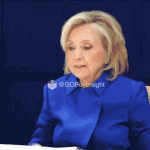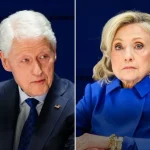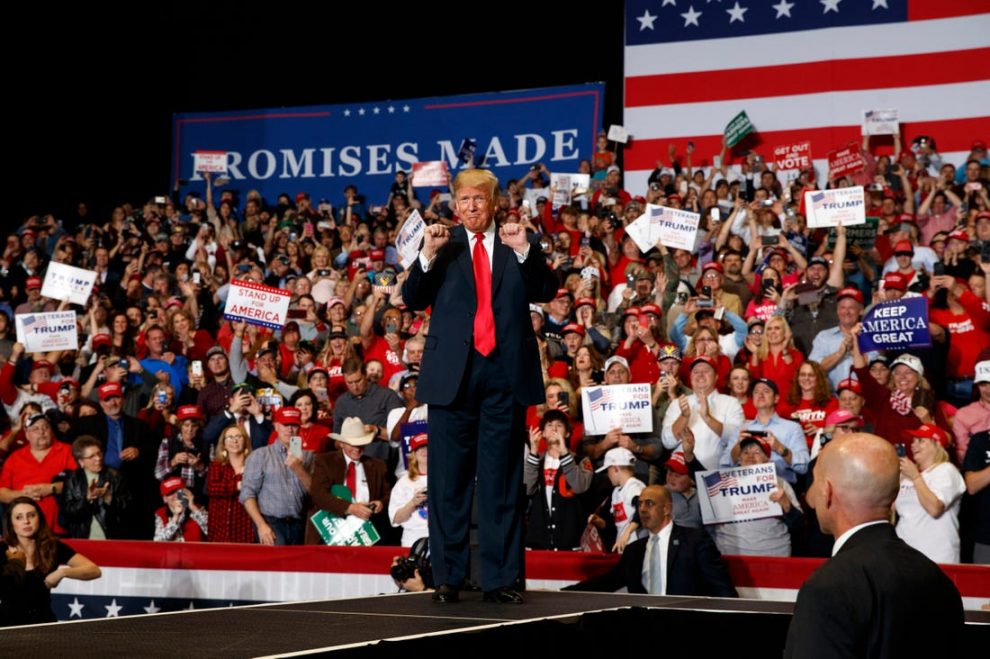There is no significant evidence that President Trump’s campaign rallies have been “superspreaders” of Covid-19, a Daily Caller analysis of publicly available health data has found. State health officials responsible for maintaining such data concur that Covid-19 numbers cannot be directly tied to campaign rallies.
Speculation from some observers before and during the events raised alarms that they could worsen the ongoing pandemic. But a combination of publicly available statistics on the spread of Coronavirus and analysis from public health experts concludes that the president’s campaign rallies cannot be tied to spikes in Covid-19 infections in their surrounding areas, if cases in the area even increased, which not all did.
The Daily Caller reviewed case data provided by state and county authorities where the Trump campaign held public events. The number of new infections on the day that rallies took place was compared to the number of new infections one week, two weeks and one month later in each location to determine if there was a significant increase in new infections post-rally. Seven-day averages of new infections were used where available.
The Trump campaign has held 23 rallies since the country began shutting down to combat the Covid-19 pandemic, beginning with the now infamous Tulsa rally on June 20.
Thousands gathered indoors in Oklahoma’s second-largest city to welcome the president, and statewide new cases were 32% higher one week after the rally. However, cases in Tulsa County actually trended downward during the two weeks after the rally, and a spokesman with the Oklahoma State Department of Health told the Daily Caller that they don’t have “hard data” that connects the rally with any increase in cases. The Tulsa Health Department does not publicly release information on what events Covid-19 cases could have been contracted.
Examination of the other 22 rallies found similar results. Roughly half of the events clearly did not precede an upward swing in the rate of Covid-19 infections in the host state or county. This includes campaign stops during August and September in Minnesota, Pennsylvania, North Carolina, Michigan, Nevada and Ohio. The remaining rallies occurred around the times of what appear to be increases in Covid-19, but no evidence can prove a link between the President’s visits and the outbreaks.
The Trump campaign held rallies in Old Forge, PA, Aug. 20 and Moon Township, PA, Sept. 22. Data from both Lackawanna and Allegheny County show increases in Covid-19 infections in the weeks following the rallies. However, Deputy Press Secretary Maggi Mumma of the Pennsylvania Department of Health told the Daily Caller that they had found no links between either rally and new Covid-19 cases.
The Daily Caller got the same message from Laura Montenegro, Public Information Officer for the New Hampshire Department of Health and Human Services, where Trump held a rally Aug. 28. “We are not aware of any cases linked to the Trump rally on 8/28,” she said.
About a Trump visit to Ohio on Sept. 21, Melanie Amato, Press Secretary for the Ohio Department of Health, said, “There have been no cases linked to the rally on 9/21.”
The same pattern emerges for Trump’s Sept. 12 rally in Minden, Nevada, which is less than an hour from Reno. There appeared to be an increase in cases in the Reno area, but Scott Oxarart with the Washoe County Health District told the Daily Caller that they didn’t connect any cases to that rally or a rally the next day in the Las Vegas area.
Shannon Litz, Public Information Officer for the Nevada Department of Health and Human Services told the Daily Caller “at this time, one individual who has tested positive for COVID-19 has reported to Carson City Health and Human Services a connection to a political rally.”
Two rallies in Wisconsin on Aug. 17 and Sept. 17 appeared to predate Covid-19 outbreaks in their surrounding areas, however the Wisconsin Department of Health says they can’t reliably link any cases to the campaign events. Public Information Officer Judy Burrows of the Marathon County Health Department said “our weekly data demonstrates our upward trend started after Labor Day weekend,” which was two weeks before the President visited that region of the state.
Trump’s Sept. 18 rally in Bemidji, Minn., was the only event we investigated that ended up with multiple connected cases of Covid-19. Doug Schultz, Information Officer for the Minnesota Department of Health says they have identified nine individuals who attended the rally and later tested positive for Coronavirus. The rally was attended by thousands of supporters.
Schultz added that “it’s always difficult to attribute increases or decreases in daily case numbers to specific causes as there can be multitude of factors influencing the numbers.”
It is too soon to draw conclusions about some of the Trump Campaign’s more recent events. Beyond speculation, however, it is clear that there is no verifiable evidence to show that Trump rallies have meaningfully increased the spread of Covid-19. Still, some experts, like Dr. Michael Osterholm, the Director of the Center for Infectious Disease Research and Policy at the University of Minnesota, remain concerned.
Poor contact tracing is one reason that some scientists are warning against these large gatherings. Osterholm told the Daily Caller to remember the old adage, “absence of evidence is not evidence of absence.”
Osterholm said that many states are woefully ill-equipped to perform widespread contact tracing because the virus may have gotten out of hand there before a system could be properly implemented. He described that many of America’s peers in Europe and Asia were able to implement effective contact tracing systems after getting the initial spread of the virus under control, but “we never did that,” he told the Caller in an interview.
View of the crowd here in Sanford, Florida. Trump’s first rally since being infected with Covid-19. Crowd is not socially distanced and lots of people with no masks. pic.twitter.com/IRy81n5Cws
— Richard Hall (@_RichardHall) October 12, 2020
Osterholm said that Minnesota has one of the strongest health departments in the country, and that may be why they were able to trace more cases back to a Trump rally than other states. Still, he says that mass protests don’t seem to have caused many new infections in part because they’re outside.
Osterholm further said that more routine indoor gatherings are still the primary vectors of transmission, something multiple health department officials echoed to the Caller. While the media focuses on large public gatherings and blames Trump rallies for increasing spread, they said it is still weddings, funerals, parties, and other such events that are driving this pandemic.
As Dr. Osterholm pointed out, people who attend large gatherings like protests or rallies are “likely to be gathering amongst themselves before and after the events” as well, and these are people who are more likely to be out living their lives “normally” than others, potentially putting them at an increased risk of infection. An individual going to a rally and later testing positive does not necessarily show that the virus was contracted at the rally.
Story cited here.

